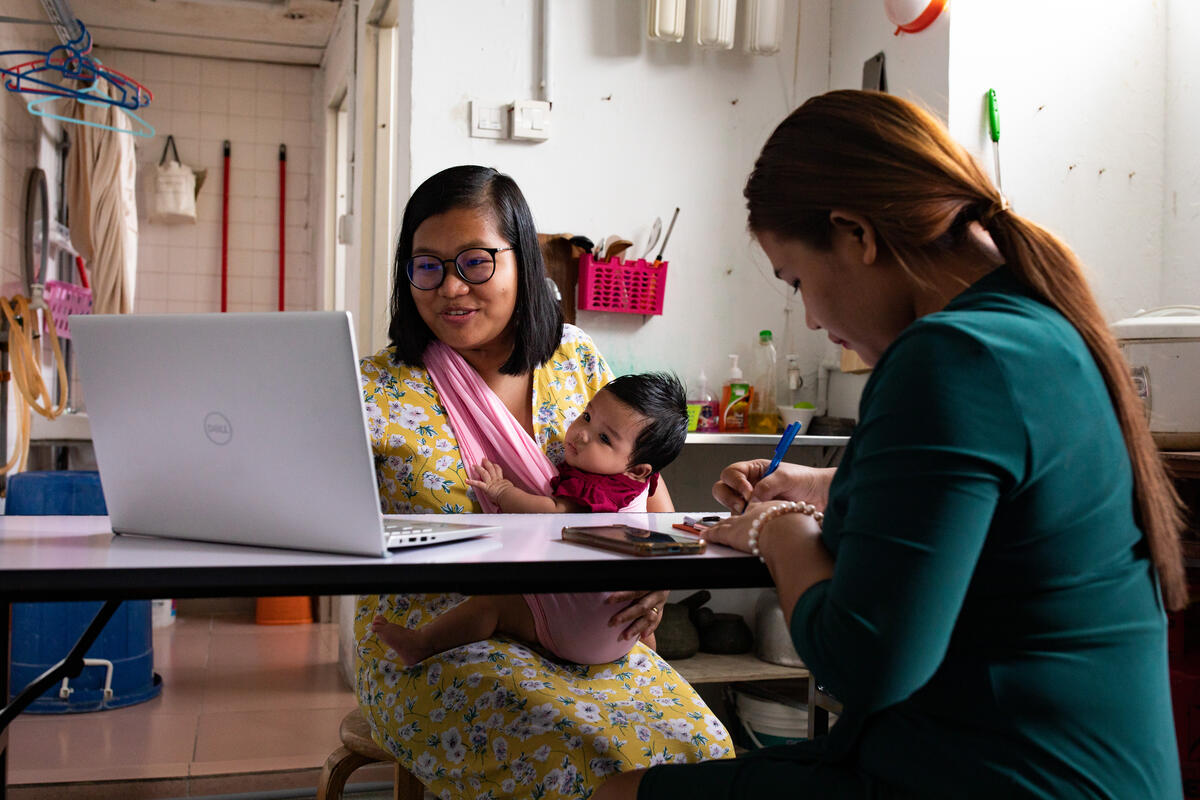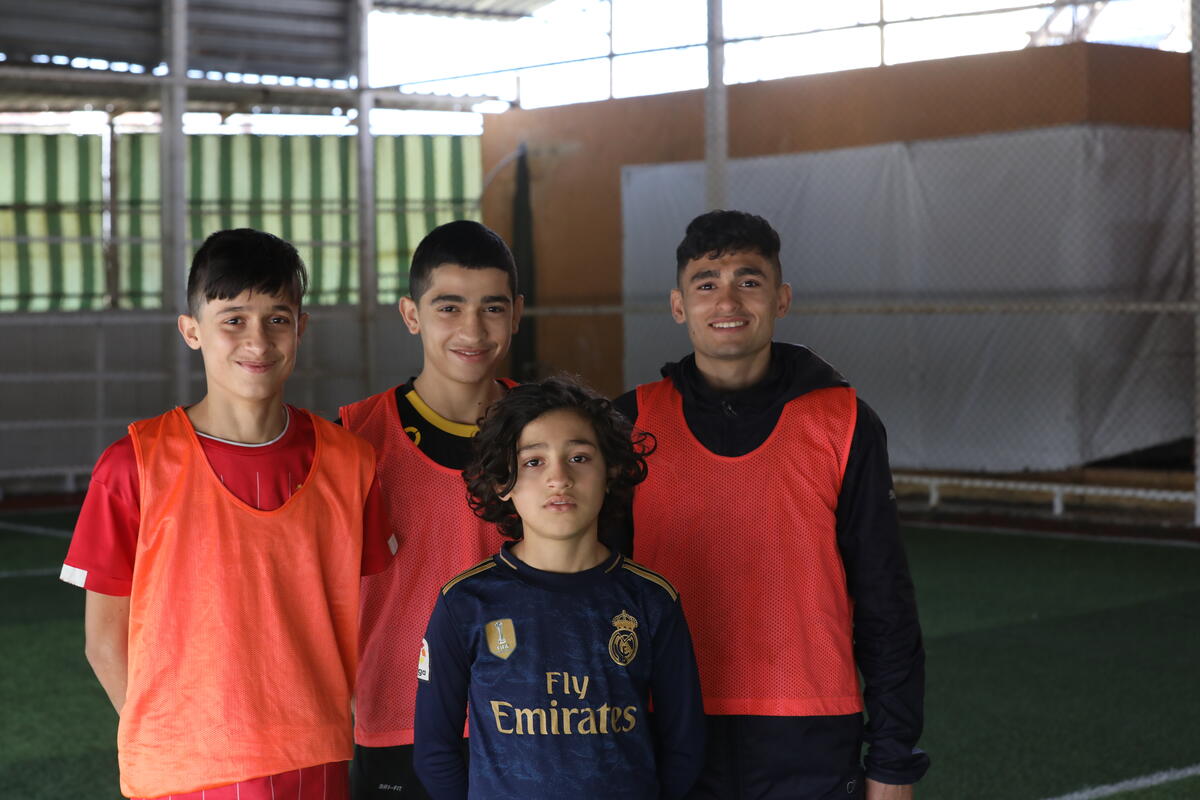UNHCR joins UNAIDS in fight against global epidemic
UNHCR joins UNAIDS in fight against global epidemic

GENEVA, June 25 (UNHCR) - The UN refugee agency has become the latest co-sponsor of UNAIDS, a collaboration that will help UNHCR include refugees in their host country's HIV/AIDS programmes, and enable UNAIDS to reach out to marginalized people especially in complex emergencies.
On Thursday, UN High Commissioner for Refugees Ruud Lubbers and UNAIDS Executive Director Peter Piot signed a memorandum of understanding that made UNHCR the 10th co-sponsor of UNAIDS, in addition to agencies like the World Health Organisation, the World Food Programme and the World Bank.
This move will broaden and strengthen the UN's response to the global AIDS epidemic.
"UNHCR is absolutely vital in the fight against HIV," said Dr Piot. "Ensuring that refugees benefit from effective prevention efforts means that traumatised people who have had to flee their homes can avoid the further devastation of AIDS."
"By becoming a co-sponsor, UNHCR will be able to advocate more effectively to include and integrate refugees into host countries' HIV policies and programmes," said Lubbers, noting that refugees have traditionally been excluded from such plans. "It will also contribute to reducing the stigma and discrimination of HIV often directed towards refugees."
He added that the refugee agency is in a unique position to contribute as it has substantial ongoing HIV/AIDS programmes and logistics in place to reach refugees as well as the surrounding host communities, which are often located in remote areas.
"UNHCR's added value is in its vast experience and active presence in many of the world's conflict zones, reaching out to the poor and neglected in areas ravaged by war, upheaval and AIDS," said UNAIDS in a press statement. "Its expertise is invaluable in developing and managing responses to the epidemic in complex humanitarian situations."
Over last two years, UNHCR's HIV/AIDS programmes have improved and become more comprehensive in areas like voluntary counselling and testing, as well as the prevention of mother-to-child transmission. In 2003, the agency conducted over 15 assessment and evaluation missions in 11 countries, which resulted in significant additional funding to improve their HIV programmes.
At its headquarters in Geneva, UNHCR has set up a HIV unit with two technical experts. This is in addition to regional coordinators in Africa, which has the highest HIV/AIDS prevalence rates and hosts the second-largest refugee population globally. Similar regional coordinators are planned in Asia in early 2005.
Among other challenges, UNHCR has learnt that social and cultural traditions that sustain gender inequalities can compound the problem of HIV/AIDS in refugee camps. It is working to ensure that gender-sensitive measures are adopted to prevent the spread of the disease and provide support for those living with it.
The agency also recognises the need to debunk the myth that refugees bring HIV/AIDS to their host communities. Recent studies reveal a lower prevalence of the disease in refugee camps compared to local communities living in the same area.
"Protection and advocacy are essential elements to combat the rampant HIV discrimination and stigma that is often directed at refugees," said High Commissioner Lubbers. "Lessons from the repatriation of Angolan refugees have shown that a proactive approach is needed to convince governments and donors that refugees often have a lower HIV prevalence than their host populations and have much to offer when they return home."
UNHCR had been working with UNAIDS even before the co-sponsorship, producing tools and guidelines for coordinated action in regional crises like in the Great Lakes and Horn of Africa. The partnership will no doubt deepen with the co-sponsorship, as UNHCR benefits from the technical expertise and resources of UNAIDS and other cosponsors.








